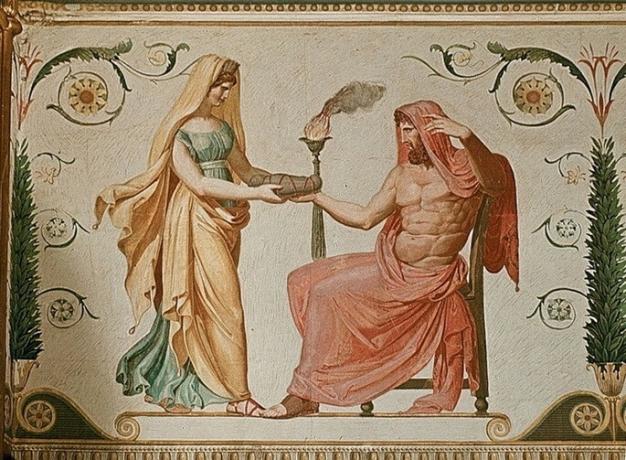When we talk about "birth" we immediately realize the sense of generating something to starting from something that is supposed to be previous (for example: the parents precede the birth of a son). So, when we talk about birth of philosophy we might want to establish not only the material conditions that allowed it to occur, but also the cultural structure that would serve as the basis for such an episode.
There were many discussions in which it was tried either to make a link between the Greeks and the Orient or to demonstrate the originality of the Greeks in relation to Philosophy. But according to the Hellenist Jean-Pierre Vernant, neither miracle nor Orientalism at its extremities define the emergence of Philosophy. This is because it clearly owes a debt to the Orient due to contacts with Persians, Egyptians, Babylonians, Chaldeans – but what she transformed these contents into results in something totally innovative in thought human.
While many forecasting, calculation, etc. techniques already existed as practices carried out in the cultures mentioned above, the philosophical question is entirely radical in relation to what was in everyday life: Philosophy asks about
what's the thing, how the thing is constituted, what is its origin and cause. But there is still a problem here, because even before asking these questions, moving them to a field logical-conceptual, there were already answers given that satisfied, at least temporarily, the consciences of the era.It is in the meantime that the so-called Cosmogony (cosmos = organized world, universe; agony = genesis, origin) which was the first attempt to explain reality. This was based on myths (narratives) that created, from images of gods, inanimate beings, animals, etc., the hierarchical and organized structure of the world.
Do not stop now... There's more after the advertising ;)
However, Philosophy appears as Cosmology (logos = reason, word, speech, counting, calculating), that is, the understanding that the world is, yes, organized, but the foundations of their explanations are not merely anthropomorphic beings, but concepts of our own rationality. Philosophy appears to replace the cosmological-cosmogonic model with the cosmological-rational one. It doesn't mean that the previous process is irrational, but it just constitutes an immanent logic, in the sense of being linked to the psychological or to the contents that shape the arguments, while Philosophy, when making and constituting itself, will propose the inverse model, that is, in which the logical form better constitutes the contents of thought, ascending to the true knowledge.
Therefore, with this inversion, there are two consequences: the first is to require the autonomy of the listener or in general of the individual for himself and no longer conferring it to the external authority of poets, rhapsodes and aedos (artists of the era); the second is that this process of logicization and conceptualization promotes the distinction between mysticism and rationalism in order to unveil man himself, with his powers to to know and act justified in reason, that is, the agonism (combat) between gods and men ends, and only the agonism between men remains, as a way to overcome the tragedy of our existence.
By João Francisco P. Cabral
Brazil School Collaborator
Graduated in Philosophy from the Federal University of Uberlândia - UFU
Master's student in Philosophy at the State University of Campinas - UNICAMP

